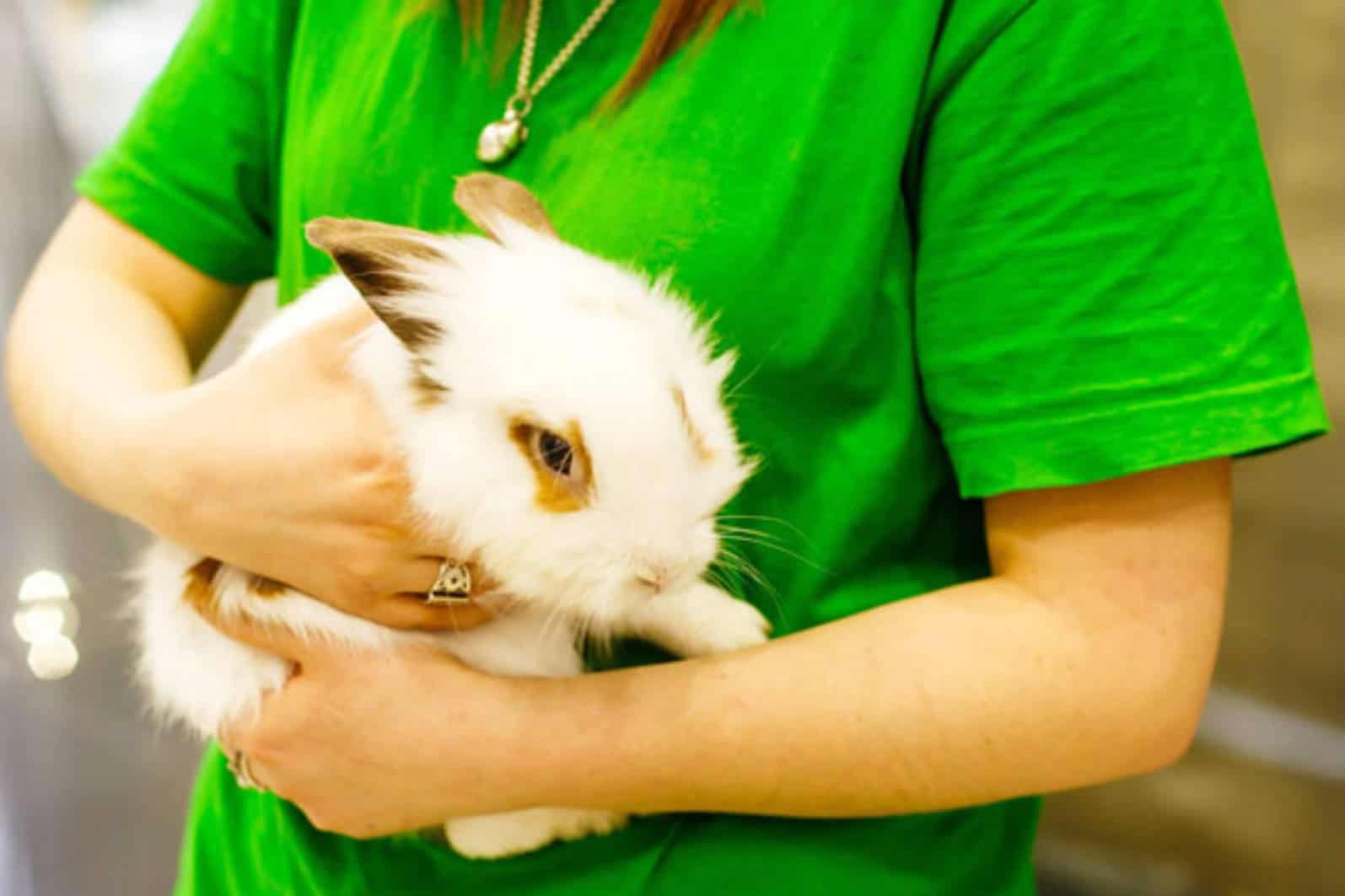Lionhead Rabbits are distinct from other rabbits because of their fluffy wool. Their heads pop from their tiny bodies, making them look closely similar to lions.
But unlike fierce lions, a Lionhead Rabbit has a fantastic temperament and is a perfect match for humans, especially kids. Lionhead Rabbits are known to be tame, calm, friendly, energetic, and playful.
There are lots of interesting facts about the Lionhead Rabbits. Read along!
Breed Chart
Size | Dwarf |
Weight | No more than 4 pounds |
Lifespan | Approximately 7 to 12 years |
Temperament | Smart, talented, playful, energetic, spunky, sometimes skittish |
Color | Black, Black Otter, Tan, Chocolate, Blue, Tortoise, Sable Martin, Chestnut, Squirrel, Chinchilla, Golden, Smoke Pearl, Siamese Sable, Lilac, Opal, Frosted Pearl |
Rarity | Less common |
Similar Breeds | Holland Lop, Netherland Dwarf Rabbit, Jersey Wooly, Dutch |
Best Suited For | Owners who are experienced in taking care of rabbits, homes with other pet rabbits |
Background And History
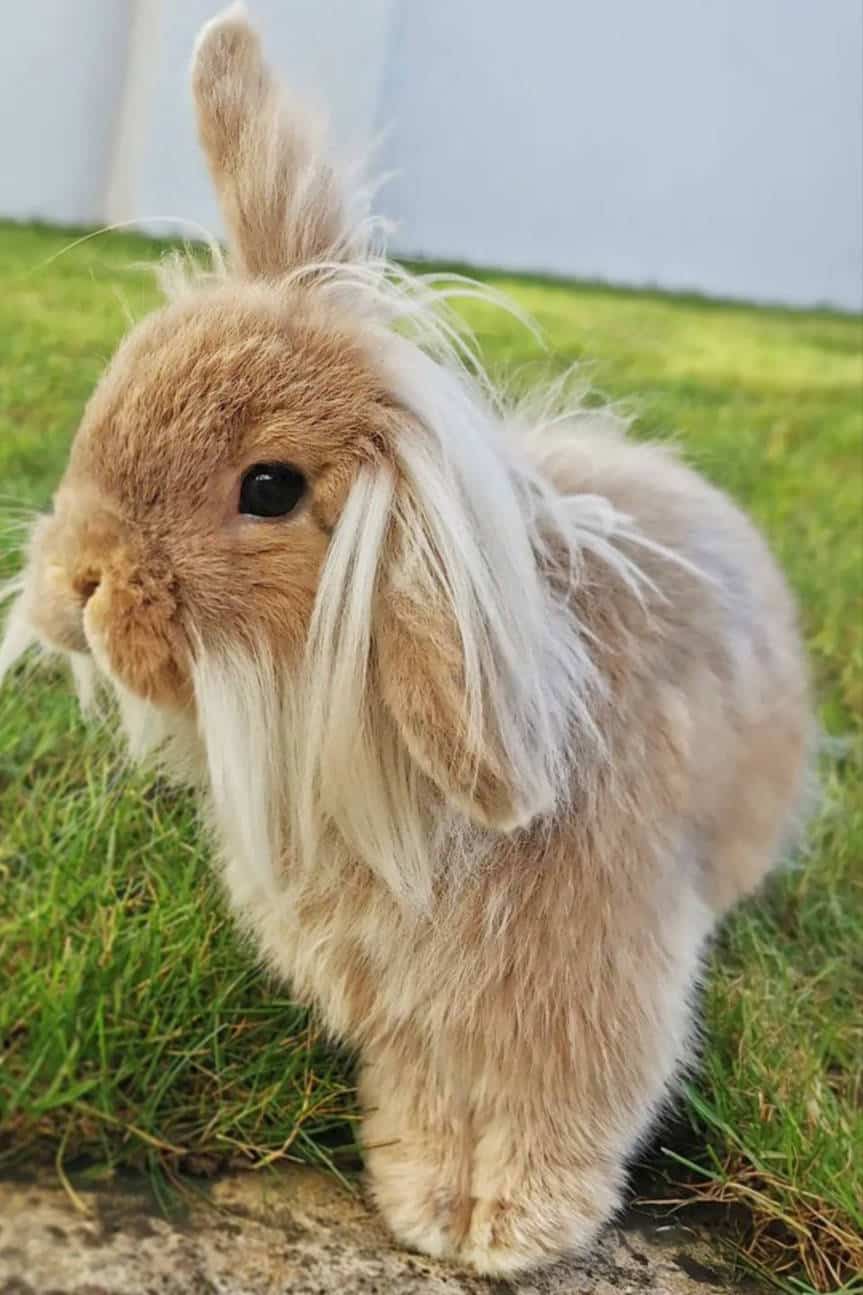
Many theories tackle how the Lionhead Rabbit originated. Some rabbit enthusiasts believe this breed came from a Swiss Fox and a Netherland Dwarf Rabbit crossing.
On the other hand, many researchers say that the Lionhead Rabbits were from breeding a Dwarf Angora or Jersey Wooly and a Netherland Dwarf. Without scientific proof, we can’t tell which of the two theories is more likely to be true.
However, we know that Lionhead’s mane gene was believed to have originated from a litter of Havanas with satin fur. This dominant mane gene was a factor in how the Lionheads came to life.
But, how did these rabbits start to populate in the US and Europe?
Lionhead Rabbits were first discovered in France and Belgium. During the late 1980s, Lionhead Rabbits were transported, becoming popular in Europe. In 2002, the United Kingdom officially recognized the breed through the British Rabbit Council (BRC).
In 2000, the first Lionhead Rabbit was introduced in the US. It took 14 years for the breed to be acknowledged by the American Rabbit Breeders Association (ARBA) in 2014.
But, only the Ruby Eyed White and Tortoise variations were officialized by the organization. There are several presentations to be laid out for recognition.
Breed Size and Appearance
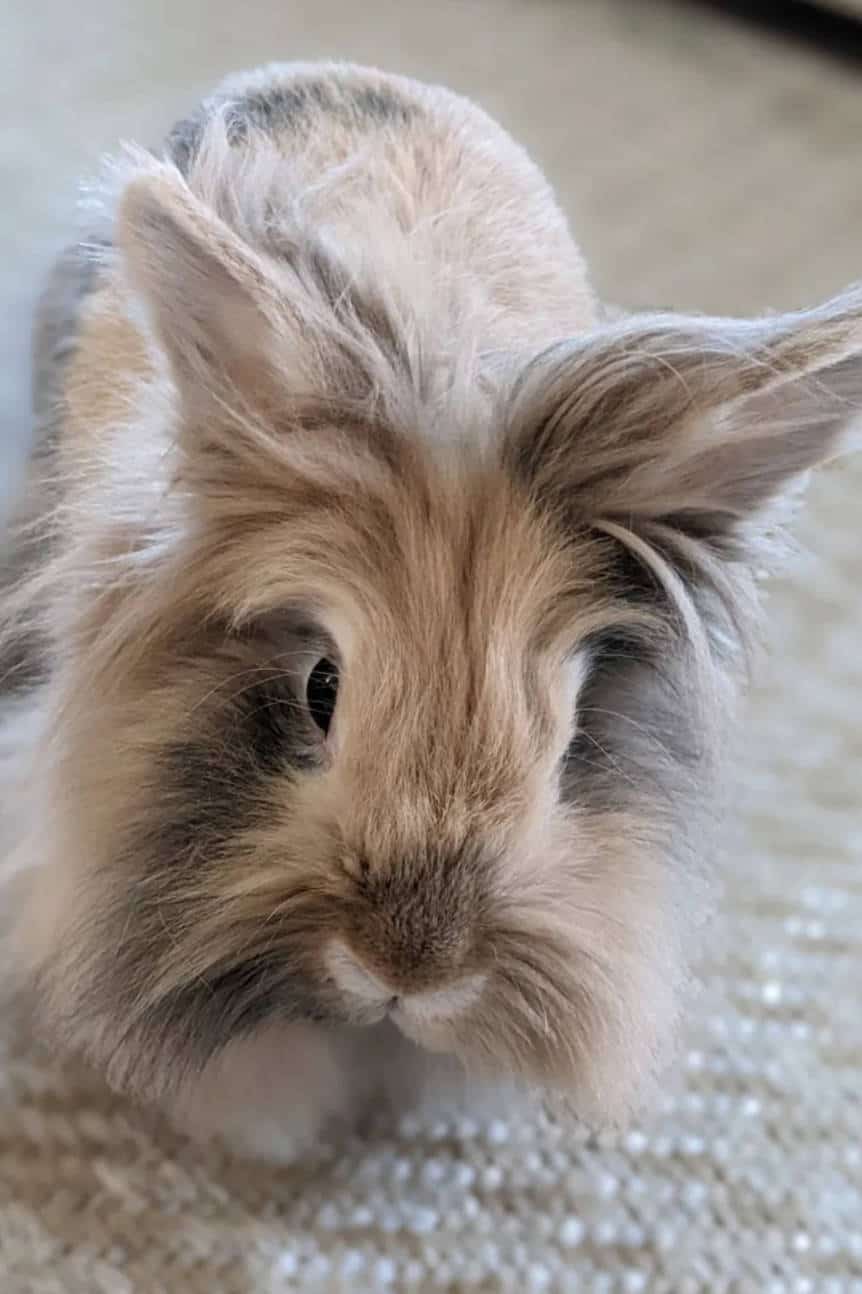
Lionheads are small rabbit breeds, weighing less than 4 pounds and measuring up to 8 to 10 inches in length.
As their name implies, their heads look like that of a lion’s. They have a wool mane encircling their heads. Because of this, their heads appear bigger than they actually are.
Single Mane and Double Mane Lionhead Rabbits
Lionhead Rabbits can either have a single or double mane. This depends on the number of genes they inherited from their parents.
Lionhead Rabbits with single manes have received only one gene that produces the mane. Lionheads with double manes have received both genes that generate the manes.
Some Lionhead Rabbits may not inherit a mane gene. Those without a mane are called No-mane Lionhead Rabbits.
If you see a Lionhead with thin fur around its head, ears, and chin, it indicates a single mane. Single mane Lionheads typically do not have manes for their entire lifetime.
Double mane Lionhead Rabbits have thick coats on their head that are often called “skirts” because they encircle the whole head.
Color
Lionheads come in a variety of colors. The following are the recognized colors by the US: Black Otter, Blue Otter, Blue, White, Tan, Tortoise, Smoke Pearl, Fawn, Siamese Sable, Frosted Pearl, Red, Golden, Lilac, Opal, Orange, Chestnut, Sable Martin, Sable Point, Chocolate, Chinchilla, and Squirrel.
Eye Color
Lionhead Rabbits have bold, round eyes, with brown being the most common eye color and marble being the rarest of all eye colors. Lionheads with white coating usually have red or blue eyes.
Coat
Lionheads have distinctive fluffy fur. Their mane-like hair cover around their head. This breed has a lot of hair compared to other types of rabbits. They have a soft, medium to long fur that you need to groom regularly. Lionheads have thicker fur in the winter and shed during spring.
Personality and Temperament
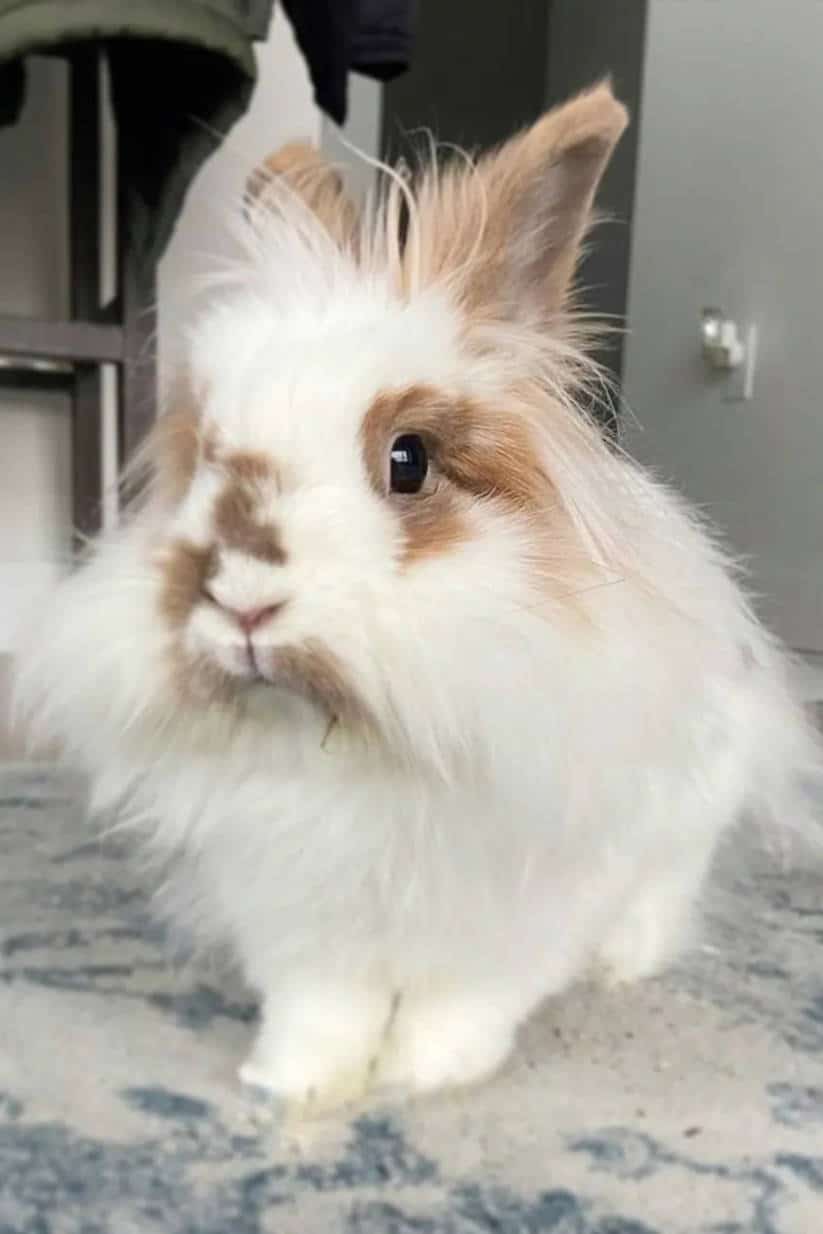
Because of their fun personality, Lionheads are popular pets. Lionhead Rabbits are friendly, sociable, and relaxed. They can get skittish at times, but they are intelligent. They can pick up tricks and some commands.
This breed has a good temperament. They love cuddles and are happy to get your attention. They also like being picked up and petted. Liohneads do not get easily agitated. However, it’s always best to respect their personal space, as they might get afraid sometimes.
Lionhead Rabbits love chasing things and hopping into your lap. Children are a great company of these small bunnies. They’d enjoy playing around with this confident and energetic breed.
Be careful as some kids might hurt them. If you have little ones at home, teach them how to handle Lionheads properly. Make sure that each person in the household knows how to care for these delicate Lionheads.
Lifespan
The average lifespan of Lionhead Rabbits is 7 to 12 years. Rabbit enthusiasts say that this is the perfect range for having rabbits as pets. The lifespan of 7 to 12 years is not too short nor too long enough to form a strong bond with Lionhead Rabbits.
Health Issues and Treatment
Lionhead Rabbits are prone to health concerns, like most rabbits. These are the health issues they are susceptible to.
Misaligned Teeth & Mandibular Prognathism
Lionheads’ teeth grow continuously throughout life. For this reason, some rabbits grow gigantic teeth, most especially when they eat less hay. This leads to misaligned teeth. Crooked teeth make eating uncomfortable and sometimes painful for this small breed.
Another cause of misaligned teeth is their appearance. Lionheads typically have smaller heads and an elongated jaw. This creates misalignment like mandibular prognathism.
Regular dental check-ups will help prevent this dental concern.
Uterine Cancer
Uterine cancer, specifically uterine adenocarcinoma, is the most common malignancy in rabbits.
Uterine adenocarcinoma is an aggressive, malignant disease that presents harmful symptoms. These include mastitis, decreased appetite, vaginal discharge, hematuria, breathing difficulty, and lethargy.
Unneutered female rabbits are more at risk for this illness, so having your rabbit spayed is highly suggested by veterinarians for prevention. The treatment of uterine adenocarcinoma in affected rabbits involves hysterectomy, which is the removal of the diseased organ.
Ear Mites
Psoroptes cuniculi, or rabbit ear mites, are common health issues among rabbits. Ear mites spread quickly are very irritating to your pet.
If your Lionhead constantly scratches or chews their ears and shakes their heads, examine them for ear mites. Symptoms of ear mites include inflammation of the ear canals and crusting of the ears. You may also notice scratches on the skin of the neck near the ears.
Mites medications like Ivermectin can be prescribed to your pet for this condition.
Viral Hemorrhagic Disease
Viral hemorrhagic disease or VHD is common in Lionhead rabbits. This is caused by Calicivirus. VHD can be prevented through vaccination.
Are Lionheads prone to fracture?
Lionheads are extremely delicate. They have particularly fragile bones like their spines.
Some Lionheads tend to kick out with full force when frightened and alarmed. This may cause a spinal injury that potentially paralyzes its hind legs. Spinal injury not only causes paralysis but may also result in incontinence and lethargy.
Treating spinal injuries depends on the severity of the fracture and the rabbit’s condition. If a rabbit exhibits paralysis of its hind legs and incontinence, the rabbit may be put to sleep.
If the injury does not present paralysis, veterinarians may prescribe anti-inflammatory medicines to address pain. There are also some procedures that the doctor may perform. However, it is important to know that spinal trauma is not curable.
Lionhead Rabbit Care Sheet
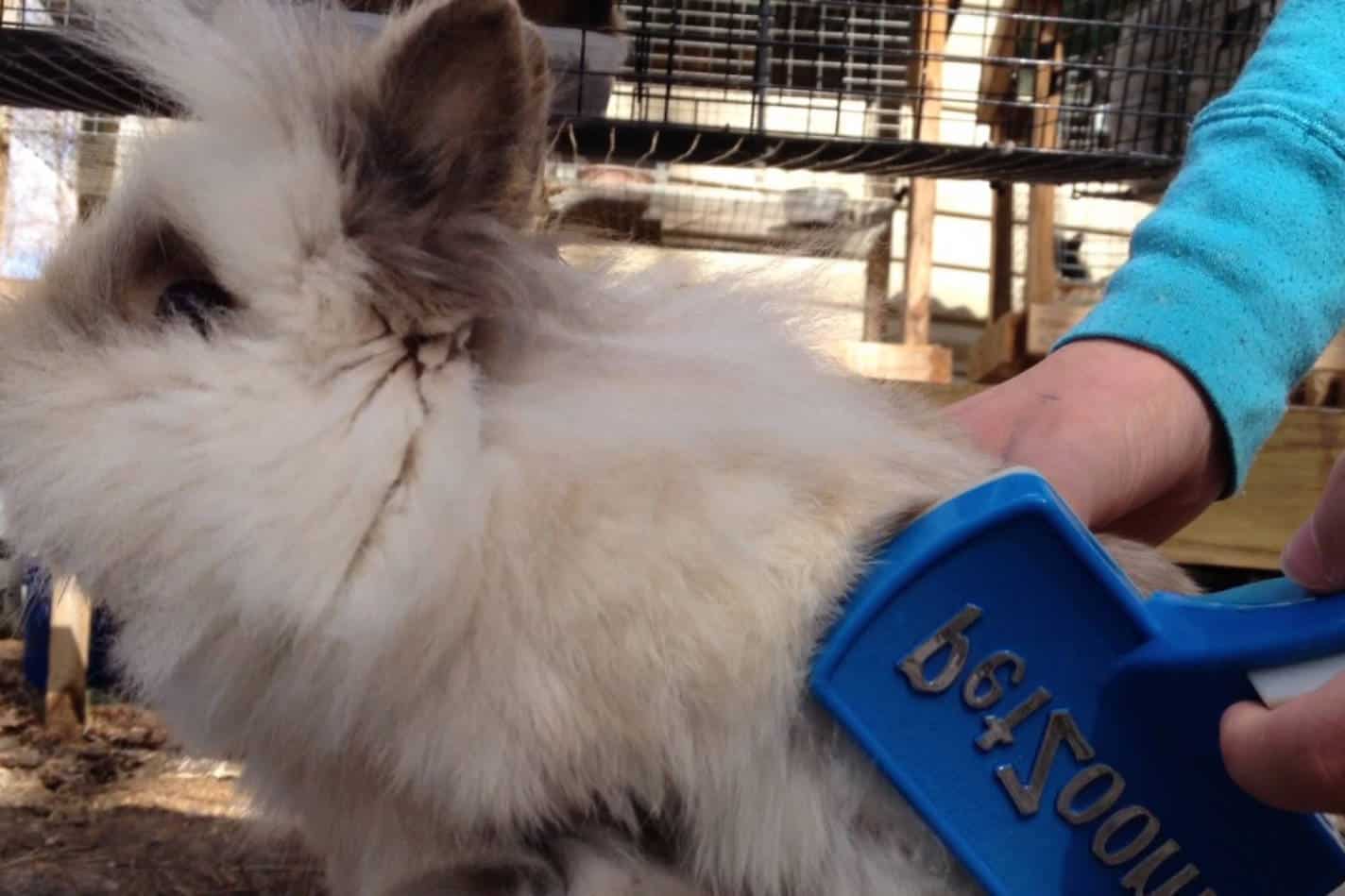
Choosing the Best Cage
While these rabbits are tiny, they get excited about big spaces, which is why bigger cages are ideal for Lionhead Rabbits. Their cage should be at least 25 x 25 inches or 60 x 60 centimeters. This provides enough room to hop around, play, jump, dig, rest, and go potty.
Diet
A Lionhead Rabbit’s dietary needs are simple. Below is the recommended content of your rabbit’s daily intake:
- Water: Rabbits need fresh and clean water at all times. They keep every cell in your rabbit’s body alive and working. Water also keeps everything moving in their organs. It functions to remove excess calcium as well.
- Hay – 70-80%: Lionhead rabbits need constant access to hay or grass. This is considered the most vital part of your pet’s diet. Hay or silage should be made available throughout the day, preferably 24/7.
- Pellets – 10%: Pelleted food provide Lionheads with nutrients and minerals that hay and vegetables may not provide adequately. Pellets supplement your rabbit’s diet, but they should be fed with pellet food in moderation. Too much pellet intake can result in overweight or obese rabbits. Follow the recommended daily amount to prevent weight issues.
- Vegetables – 10-15%: Green leafy vegetables should account for 80% of all vegetal foods. Your Lionhead rabbit may enjoy many vegetables, including parsley, spinach, cucumbers, carrot tops, kale, basil, sprouts, cabbage, peppers, celery, and cucumber leaves.
- Fruits – Up to 5%, given as treats: Lionhead rabbits can eat fruits, but only in limited amounts. Fruits should be fed in moderation and should be given as treats or as a dessert.: Fruits that are beneficial to your Lionhead rabbits are bananas, apples, grapes, strawberries, cherries, and pears.
Grooming
Because Lionhead Rabbits have mane-like medium to long hair, they need lots of grooming. Brush your Lionhead’s coat once a week to maintain its cleanliness and softness.
Double mane Lionheads need to be groomed more often than single mane Lionheads because double manes have thicker fur.
To efficiently groom your rabbit, shop for a good brush. Hold your rabbit with one hand and lightly brush through their hair and down their coat.
Quick Fun Facts About Lionhead Rabbits
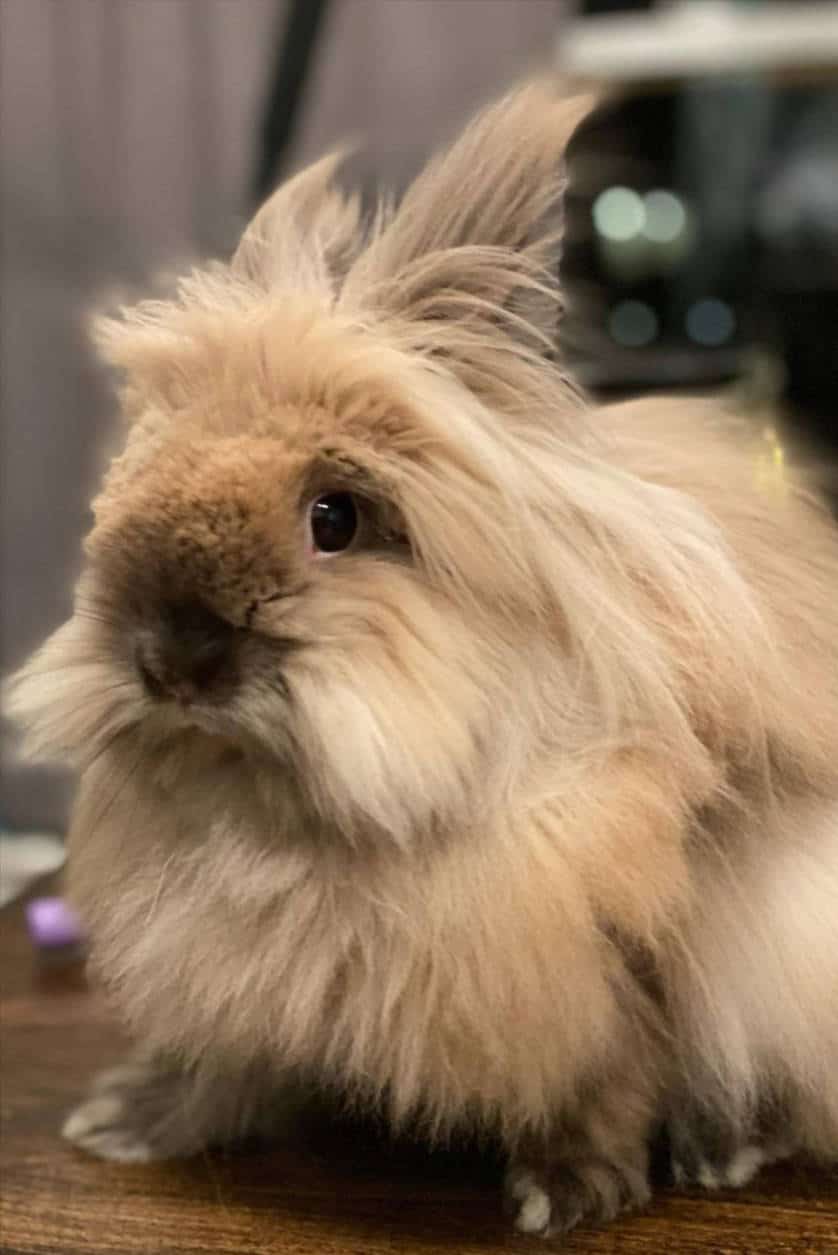
- Their breed was believed to be an accident: It is believed that Lionhead rabbits weren’t bred intentionally. According to some, they were bred by accident. But because they appeared to be a charming and adorable bunch, they were then bred further.
- They have shorter ears than most rabbit breeds: A Lionhead Rabbit’s ears are shorter than 2 to 3 inches from other breeds. They are meant to have relatively tinier ears but not smaller than a Netherland Dwarf Rabbit’s ears.
- They have a strong maternal instinct: Female Lionhead Rabbits have a strong maternal instinct. During pregnancy, mother rabbits start to create nests for their kits. They start to pile hay and blankets in one corner. They ensure that their baby bunnies will be safe and sound even before delivery.
- They are sociable animals: Lionhead rabbits are very sociable. They love being in company with other rabbit breeds. Lionhead rabbits are also not picky about their shelter. They can live both indoors and outdoors. But of course, keeping them in a large, well-protected area is optimal for their comfort, safety, and health.
- The Lionheads are a recent breed to be kept as pets: The Lionheads weren’t considered by most pet owners before. They are one of the most recent breeds to be kept as pets.
- Lionheads and humans, especially kids, make a good match: Lionhead Rabbits see humans as a great company. They enjoy clinging to our side. They like being carried and touched. Lionheads love cuddles too! However, it might take some time for them to be comfortable, so be patient. After all, it will be worth it!
- They love to be the center of attention: Their distinctive mane says it all! Lionheads love seeking your attention. They’ll probably do a binky and hop to catch your eyes. This breed loves to be entertained at all times.
Summary
Lionhead Rabbits are popular pets known for their adorable size, intelligence, and beautiful mane. They are generally a lively and confident breed ideal for children.
A Lionhead Rabbit doesn’t get easily agitated and is easy to take care of. However, it’s best to inform everyone at your home about how to handle this cute and tiny rabbit properly!
